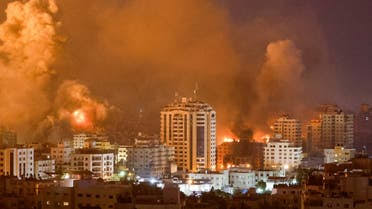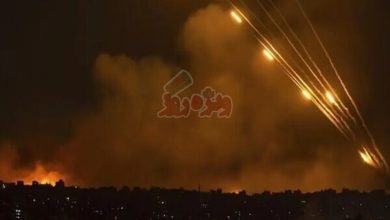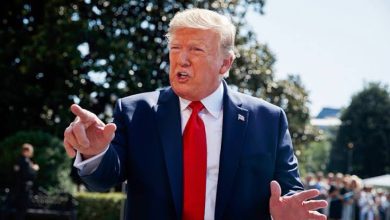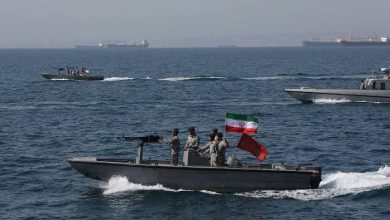Consequences of Trump’s Plan for the Middle East and Israel’s Concerns

Weezha Roz-In recent days, the proposed plan by U.S. President Donald Trump to resolve the Israeli-Palestinian issue has sparked numerous reactions from various officials, particularly from Israel.
Shlomo Binder, the head of Israeli military intelligence, has specifically warned about the potential consequences of this plan, describing it as a possible catalyst for escalating tensions in the region.
This analytical report examines these concerns and the potential implications of the plan for Israel and the broader Middle East.
1. Warnings and Concerns from Israel
Shlomo Binder, the head of Israeli military intelligence, has emphasized that Trump’s plan could significantly complicate the regional situation and potentially ignite tensions in the Middle East.
These concerns are particularly acute due to the sensitivities surrounding the Palestinian issue and the management of the Gaza Strip and the West Bank.
Trump’s plan, known as the “Deal of the Century,” aims to introduce a new approach to resolving the Israeli-Palestinian conflict by proposing changes to borders and political arrangements.
However, according to Israeli officials, these changes could lead to increased tensions and a deterioration of the security situation in the region.
2. Netanyahu’s Views and Israel’s Reactions
Benjamin Netanyahu, Israel’s Prime Minister, stated in an interview with Israel’s Channel 14 that the situation in Gaza will not return to its previous state.
He also noted that Mahmoud Abbas, the President of the Palestinian Authority, is attempting to create a “new Gaza” for Israel, but Trump has proposed an alternative idea and is even willing to take responsibility for Gaza.
Netanyahu’s remarks indicate that Israel, particularly at the leadership level, is wary of any major changes in the power structure of Palestine and Gaza.
Additionally, Netanyahu revealed that Trump has been in contact with leaders of various countries, though he did not provide further details.
3. Analysis of the Consequences of Trump’s Plan
Trump’s plan to resolve the Israeli-Palestinian crisis has elicited mixed reactions globally and regionally.
On one hand, some countries and Palestinian officials strongly oppose the plan, viewing it as favoring Israel.
On the other hand, concerns expressed by Israeli officials like Shlomo Binder and Netanyahu reflect Israel’s uncertainty about the plan.
One of Israel’s primary concerns is that accepting Trump’s plan could not only affect Gaza but also destabilize the entire region, potentially leading to dangerous levels of tension.
4. Potential Shifts in Regional Dynamics
A notable aspect of Trump’s plan is its proposals for changes to borders and territorial divisions.
Israel is concerned that these changes could strengthen opposition and extremist groups in Palestine and other Arab countries.
Moreover, these changes might prompt regional powers such as Iran and Turkey to engage in a new geopolitical game, potentially intensifying regional rivalries and escalating tensions.
Conclusion
Trump’s plan to resolve the Israeli-Palestinian issue will undoubtedly have significant consequences for the future of the region.
Israel’s concerns and the analyses of its officials suggest that the plan could exacerbate tensions and lead to major shifts in the security and political dynamics of the Middle East.
In this context, the likelihood of new developments regarding Gaza and Israel’s interactions with the Palestinian Authority and Arab states appears higher than ever.
These developments could have serious implications not only for Israel but for the entire Middle East. The continued pursuit of this plan in the coming months will undoubtedly have a profound impact on the policies and strategies of various countries.
Recommendations:
1.Diplomatic Engagement: Israel and regional stakeholders should engage in diplomatic efforts to address concerns and mitigate potential risks.
2.Regional Dialogue: Encouraging dialogue between Israel, Palestine, and neighboring countries to foster understanding and reduce tensions.
3.Monitoring Developments: Close monitoring of the situation to anticipate and respond to any escalations or shifts in regional dynamics.
Weezha Roz




